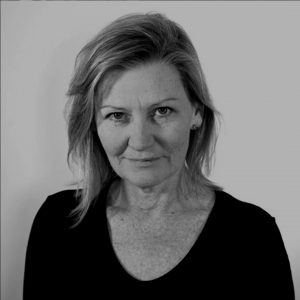
We relocated back to Wuhan when the theatre was, well almost complete. The operations team either moved into the dormitory accommodation provided or we searched for apartments so we could set up our lives here.
Now, this is a vast city, there is construction everywhere and deciding where to establish myself was daunting. Move close to work or explore another area? I was amongst a very small group that chose to live in another district. I moved away from the theatre opting to deal with commuting to work so that I would not have to tackle traffic on my days off. It was inconvenient through the creation period and if it weren’t for Dumpling, it would have been a very lonely decision.
Two years on for me, it was ultimately the smartest decision I could have made.
Sure, it would have been easier to move into the same complex as everyone else and continued with my work world being a part of my social world. But, now I’ve ended up with a nice life outside of work and I’ve made some great friends here that allow me to escape my working life. For a while I thought I had “copped” out a bit, opting for an established ‘foreigner safe’ environment where there are a variety of western food options and where the staff can speak a little English and that I haven’t immersed myself in the culture as much as I claimed I would.
I am glad I did this; because it turns out it would be my working life where I would become exposed to the Chinese way of thinking and my home life would become the sanctuary I needed. It’s been interesting with the colleagues that have left Wuhan, more than one have said if they had moved away from the theatre district they might have survived in Wuhan longer.
My existence at work is where I have had my education and experiences of Chinese culture and the day-to-day change to my way of thinking.
It turns out that the lateral way of thinking that has got me where I am professionally today would be challenged greatly here. The Chinese are a very literal thinking people.
For the first few months of both creation and operation this was a challenge. I’ll give you an example; early on we were looking at a scene in the pool and everything was running smoothly, the stage managers were all in their respective positions and we were preparing to move all of the wet lifts in the pool. The scuba divers made their way to their exit points and the stage managers gave the “Clear” calls to the production stage manager so they could cue automation, midway through the move a voice got onto comms and asked whether Vom (vomitory) 2 had two divers on the Vom? The stage manager responded “No I have 1 diver on the Vom”. The sequence was stopped and the search for the second diver commenced. It turns out that the second diver was there the whole time but standing next to the Vom, not ON it.
With an experienced team, it would be known the relevant question is in fact “Do you have 2 divers?” Needless to say the question was taken very literally which is how the answer was reflected. There was a lot of criticism of the stage management team at this time, yet they answered literally the question they were asked. It was at this time that I recognised it was us, the expatriates, who needed to adjust how we operated. Once this major difference was established it became easier for me here, I began to rephrase my questions and encouraged others to do so too and things became much more workable.
When you deal daily with a team where English is a second language understanding the way the language is structured is important when phrasing questions. I, for sure, didn’t recognise this until well into my second year here so I hope any of the insights I have learned will help anyone else looking to pursue work in another country. I’ll give you another example. We were doing an evening session where the artists were all onstage playing within the fountains and water effects and I asked one of the assistant stage managers to make sure there was a towel hamper nearby.
Now this ASM had limited English, I thought this was a simple request but for him as soon as he heard the word towel he stopped listening to the rest of the sentence and let his mind start thinking about towels. He started to wonder what I wanted with towels, when really the request was for a towel hamper. There would have been less confusion if I had asked him to get a hamper of towels.
The longer I have lived here using tools like WeChat and Google translate the more I understand the sentence structure and this has helped me enormously.
We have had members of the team come and go and the current team is very strong. The working relationships that exist today took a long time to establish. Partly due to the initial pressures of setting up the teams to function in a fast paced environment as well as not having the understanding I have now. As soon as I could recognise I needed to change the way I approached things here, the easier it has become. There are several things that I would have definitely approached differently along the path, but this is always the beauty of hindsight and the journey I have taken has helped me to grow within myself.
Continue reading Creating Across Cultures, Part 3
Return to Creating Across Cultures, Part 1


Penelope Quarry is currently the Deputy General Manager / Artistic Director on the Wanda Dragone Production of "The Han Show" in Wuhan, China. Pene manages a team of 121 people including 89 Artists. Pene maintains the quality of each performance and works with the marketing team and clients to present their events in the theatre with variations on Acts from "The Han show". Since her graduation from the Technical Production course at NIDA, Sydney, Australia, Pene has had the opportunity of working extensively between the film, theatre and event worlds. She has been employed in a variety of roles; ranging from all levels of management to hands on crewing roles. Pene has been involved with productions from conception to reality and thrives on being able to facilitate the artistic vision. Naturally a lateral thinker, Pene prefers to embrace a creative challenge rather than be deterred by what may be viewed as problematic. Pene thrives on logically processing options and feels this is one of her strongest attributes. Pene currently resides in Wuhan, which offers a new set of daily challenges both in the work place and at home, all of which are easily overcome with a sense of humour and a smile.
Read Full Profile© 2021 TheatreArtLife. All rights reserved.

Thank you so much for reading, but you have now reached your free article limit for this month.
Our contributors are currently writing more articles for you to enjoy.
To keep reading, all you have to do is become a subscriber and then you can read unlimited articles anytime.
Your investment will help us continue to ignite connections across the globe in live entertainment and build this community for industry professionals.